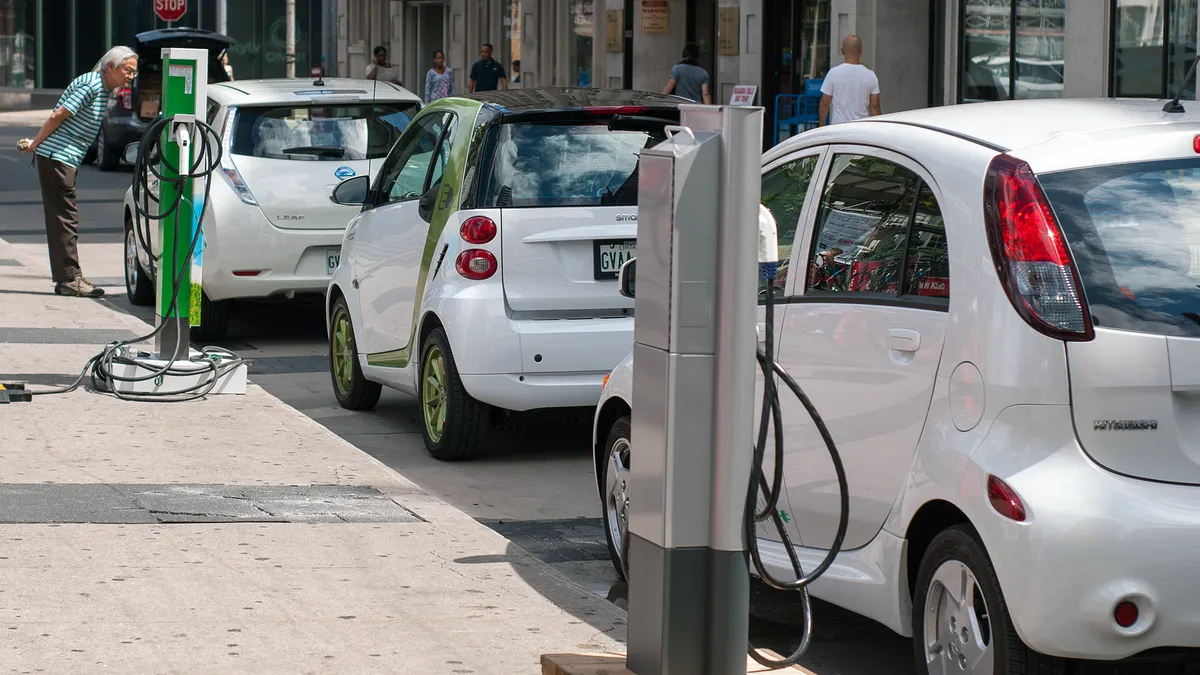Dive Brief:
- New Hampshire regulators last month opened an investigation into the resale of power at electric vehicle charging stations, following a request made by Granite State Electric, d.b.a. Liberty Utilities.
- Currently, in New Hampshire, electricity reselling is largely prohibited and Liberty said this forces charging station owners to use flat hourly rates. Some 18 states have so far made changes to allow the resell of electricity for electric vehicle charging stations, including Maine and Massachusetts, according to the utility.
- All New Hampshire utilities and other interested parties are expected to file comments by Jan. 22.
Dive Insight:
Looking ahead to the growth of electric vehicles in the state and region, New Hampshire regulators have opened a proceeding to consider how recharging stations operate and if tariff changes are necessary.
"Electric vehicles are a growing presence in New Hampshire and in New England, and their use is supported by both state and regional initiatives," the Public Utilities Commission said in its order opening an investigation.
In its filing, Liberty told regulators that prohibiting the resale of electricity in its service territory "precludes the administrator/owner of the charging station to charge for usage at a per kilowatt-hour (kWh) rate. Rather, they are forced to charge in other manners, such as an hourly flat rate."
Liberty said in its filing that customers have "voiced their complaints ... maintaining that the hourly fees are too high," and said it wants to work with the industry to "make electric vehicle charging stations more economic for customers who utilize such facilities."
A technical conference will be held next month and staff recommendations are due to the commission by Feb. 26. Liberty has asked for changes that would allow businesses offering electric vehicle charging to be allowed to "charge by any method they determine appropriate, including charging on a
per kilowatt-hour basis."















